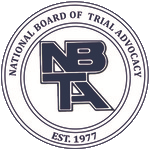Richmond Medical Malpractice Lawyer
When you enter into a hospital, doctor’s office, or clinic, you’re expecting the care you receive to treat your ailment and get you on your way. If you’re dealing with a more complicated medical issue, you may be prepared for hospital stays, procedures, and extended recovery, but you still trust that your medical team understands what they’re doing and will treat you accordingly. When patients are injured by a negligent health care professional, the consequences can completely upend a person’s life. That’s when it’s time to call a Richmond medical malpractice lawyer.
Medical malpractice claims are complex, but with the right attorney by your side, you’ll be able to hold the negligent party accountable for your injuries and have the means you need to recover.
Medical Malpractice: Understanding the Basics
Medical malpractice occurs when a health care provider commits an act of negligence while treating a patient. Negligent acts aren’t only committed by doctors. Nurses, physical therapists, pharmacists, dentists, and others who work in medical facilities can also harm patients when they don’t follow rules and protocols.
According to a 2016 study from Johns Hopkins, it’s estimated that medical errors are the third leading cause of death in the United States. In total the patient safety experts who conducted the study calculated more than 250,000 deaths per year from medical malpractice. The study attributes these preventable deaths to poorly coordinated care, fragmented insurance networks, and the underuse of safety nets.
Common forms of medical malpractice include misdiagnosis, delayed diagnosis, surgical errors, pregnancy and childbirth negligence, and medication mistakes. An improper diagnosis can result in worsening conditions – potentially to a fatal level. Surgical errors happen when a doctor operates on the wrong side of the body, leaves a surgical tool inside a patient, or doses an incorrect amount of anesthesia. Negligence during pregnancy or birth can result in injury to the mother or child. With medication errors, a condition may not be treated properly, or the patient could have a severe reaction.
The Consequences of Medical Mistakes
There are a number of consequences associated with medical malpractice. Some of the most common ones our clients deal with include:
- Worsening of the original condition
- Development of a separate condition
- Unnecessary surgery
When a condition goes undiagnosed or is improperly diagnosed, there’s a high chance the patient’s condition or illness will get worse. As a result, treatment may need to be more extensive, resulting in a longer, harder recovery. If, for example, a patient goes to the emergency room with signs of a heart attack but is dismissed and told it’s indigestion, they may need to undergo heart surgery to restore the organ if they’re not treated in time.
When a patient is given incorrect medication and has a reaction, they could develop a skin condition or other effects like tics, depending on the medication. It’s likely it will take some time for the symptoms of the reaction to wear off. This is challenging if the symptoms are painful.
When a surgeon leaves a tool, like gauze or a scalpel, inside of a patient, they’ll need to undergo additional procedures to have the item removed. This will result in a longer recovery period and increases the risk of complications.
Proving a Medical Negligence in Richmond
There are a number of elements involved in proving a medical malpractice case. First, a doctor-patient relationship needs to be established. This is the simplest part of the claim to prove. Medical records will show that the injured party sought medical treatment from the doctor or health care worker in a professional setting.
Then, negligence needs to be established. In regard to medicine, negligence involves a doctor failing to provide the same level of care used in similar circumstances by the average physician in that specialty. This is referred to as the standard of care. We can call on a medical expert to explain how the doctor or medical professional that treated you failed to do so within the standard of care.
Once negligence is established, causation can be discussed. This shows how the medical mistakes resulted in your injuries. For example, if you suffered an allergic reaction after being administered a medication you were allergic to, your lawyer can use your medical records to prove the health care staff should have recognized the allergy and given you a different medicine.
After you’ve established negligence and causation, the final element is proving damages. Damages refer to the losses you incurred as a result of the harm you suffered. Damages can be economic or noneconomic. Economic damages include losses like medical bills, past and future lost wages, and additional out-of-pocket costs for care and transportation. Noneconomic damages cover subjective losses, including pain and suffering and loss of enjoyment in life.
When our Richmond lawyers build your case, we’ll be sure to take all your losses into consideration when we fight for your compensation. Our goal is to ensure you have the means you need to recover as fully as possible and get your life back in order.
Get Help From Golden Law Office
When a health care professional or hospital fails to properly treat a medical condition or causes direct harm, determining if they’re legally liable is paramount for the victim. If you’ve sustained injuries because of a doctor’s action or inaction, a Richmond medical malpractice lawyer can evaluate your situation and determine if there are grounds for legal action.
As discussed above, proving medical negligence can be a challenge, but with our resources we’ll be able to break down where the physician went wrong, why, and how you were injured and impacted. Because of the complexity of most med mal claims, the sooner you get in touch with us the better your chances are of receiving the compensation you need to recover.
Getting started with a claim begins with a free consultation with a Golden Law Office attorney. We’ll sit down with you and receive the details of your situation. Because of our extensive experience with medical malpractice cases, we’ll be able to give you an idea of what you can expect if you choose to file a claim. Schedule your case review with us today.





